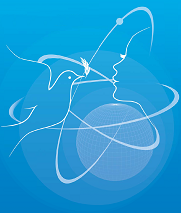Speaker
Tholakele Ngeleka
(NECSA, South Africa)
Description
Cobalt-60 sources are widely used for medical equipment and pest insect sterilization, as radiation source for radiotherapy and industrial radiography. Co-60 is produced by neutron activation of Co-59. The challenge during the activation process is the self-shielding effects. Self-shielding is the reduction of neutron flux in the energy range of the resonances resulting in reduction in resonance absorption relative to what it would be if the resonance were not present. This work evaluates the self-shielding effects on a selected range of Co-59 pellets specifications for the production of Co-60. The first approach was to develop a simple Monte Carlo Neutron Particle (MCNP) model of a Co-59 cylindrical pellet, surrounded by a relative big amount of water sphere. Isotropic source was assumed and the cylindrical pellet was segmented based on mean free path (the average distance that a neutron can travel between collisions). The flux spectrum for each segment of a cylindrical pellet and for the whole cylindrical pellet was sampled. The spectrum obtained from MCNP was then used in FISPACT (inventory code) to calculate the activity (Bq) of the Co-60 sample. FISPACT calculations were based on each cylindrical segment, and then the average (whole pellet). The activities for each segment were summed up and compared to the average value. Secondly, the Co-59 cylindrical pellets were also inserted into a canister for placement into the MCNP SAFARI-1 model for activation process in a position of interest for self-shielding effects analysis.
| Country or International Organization | South Africa |
|---|
Author
Tholakele Ngeleka
(NECSA, South Africa)

